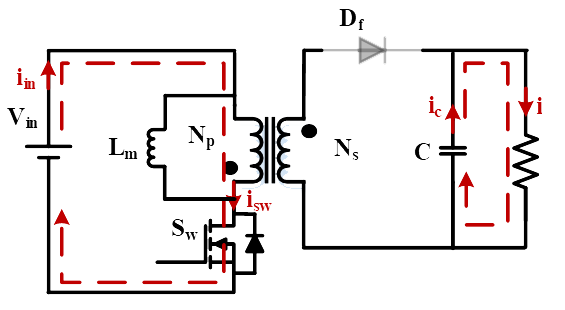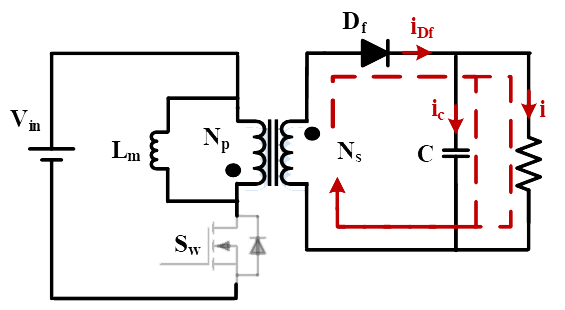Performance measurement and analysis of isolated DC-DC flyback converter
Theory
The circuit configuration of flyback converter is given in Fig. 1.

Fig.1 Circuit configuration of Flyback Converter.
Based on the operation of switch (Sw: ON/OFF-state) the operating principle of the converter is explained below briefly.
|
Mode – I : Switch (Sw): ON and Diode (Db): OFF
|
Mode – II : Switch (Sw): OFF and Diode (Db): ON
|
a) Voltage conversion ratio or voltage gain (M)
Voltage across inductor Lm is:
Mode – I :

Mode – II :
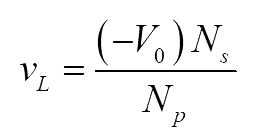
Applying volt-sec balance on inductor (eqn. 1 and 2)

On solving eqn. 3

b) Power balance under ideal condition (neglecting losses):
Under ideal condition, input power must be equal to output power, hence


Substituting eqn. 4 into eqn. 10

c) Inductor current ripple (Lm):
From eqn. 1
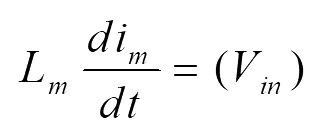
Therefore, the inductor ripple current is
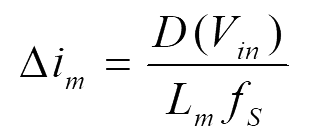
d) Current through various components:
The current through various components is given in Fig. 3.
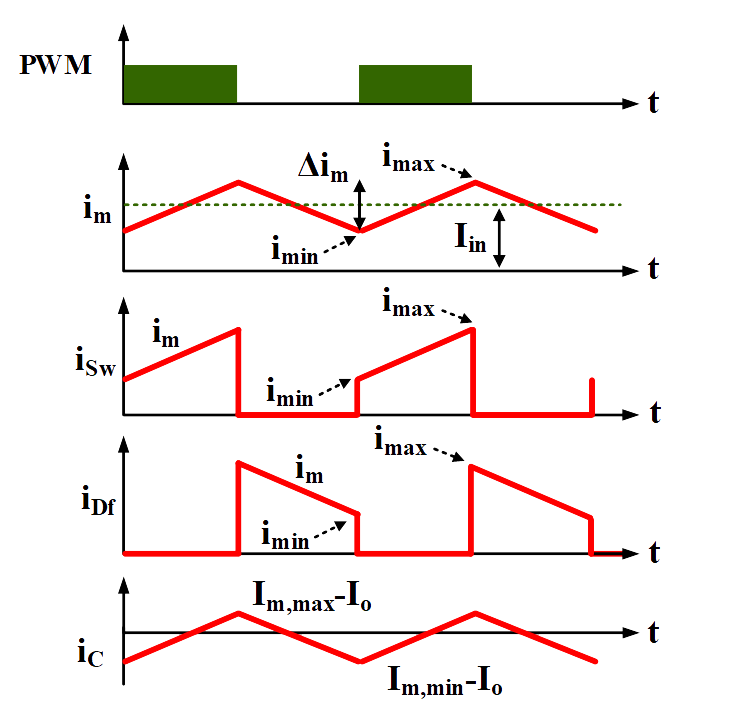
Fig. 3 Current through various components.
e) Voltage and current stress on various components:
| Component | Voltage stress | Current Stress |
| Magnetising Inductor (Lm) |  |
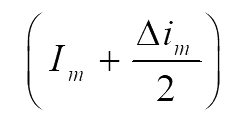 |
| Capacitor (C) |  |
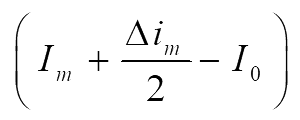 |
| Switch (Sw) |  |
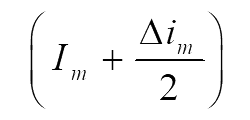 |
| Diode (Db) |  |
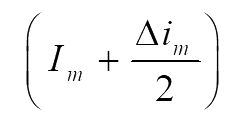 |
g) Efficiency analysis:


The power loss occurring in various components are given below.
Power loss in inductor:

Power loss in capacitor:

Power loss in switch:

Power loss in Diode:

Total power loss:

g) Effect of non-idealities on voltage gain expression:
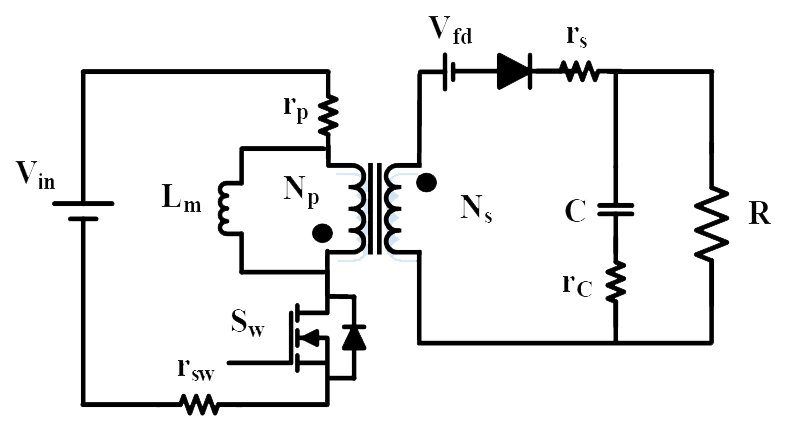
Fig. 4. Circuit configuration of flyback converter with non-idealities
Voltage across inductor Lm is
Mode – I :

Mode – II :

Applying volt-sec balance on inductor (eqn. 17 and 18)

Simplifying eqn. (19) results in

..(20)
(Voltage gain expression does not include ESR of capacitor rc)
(n=Ns/Np)

